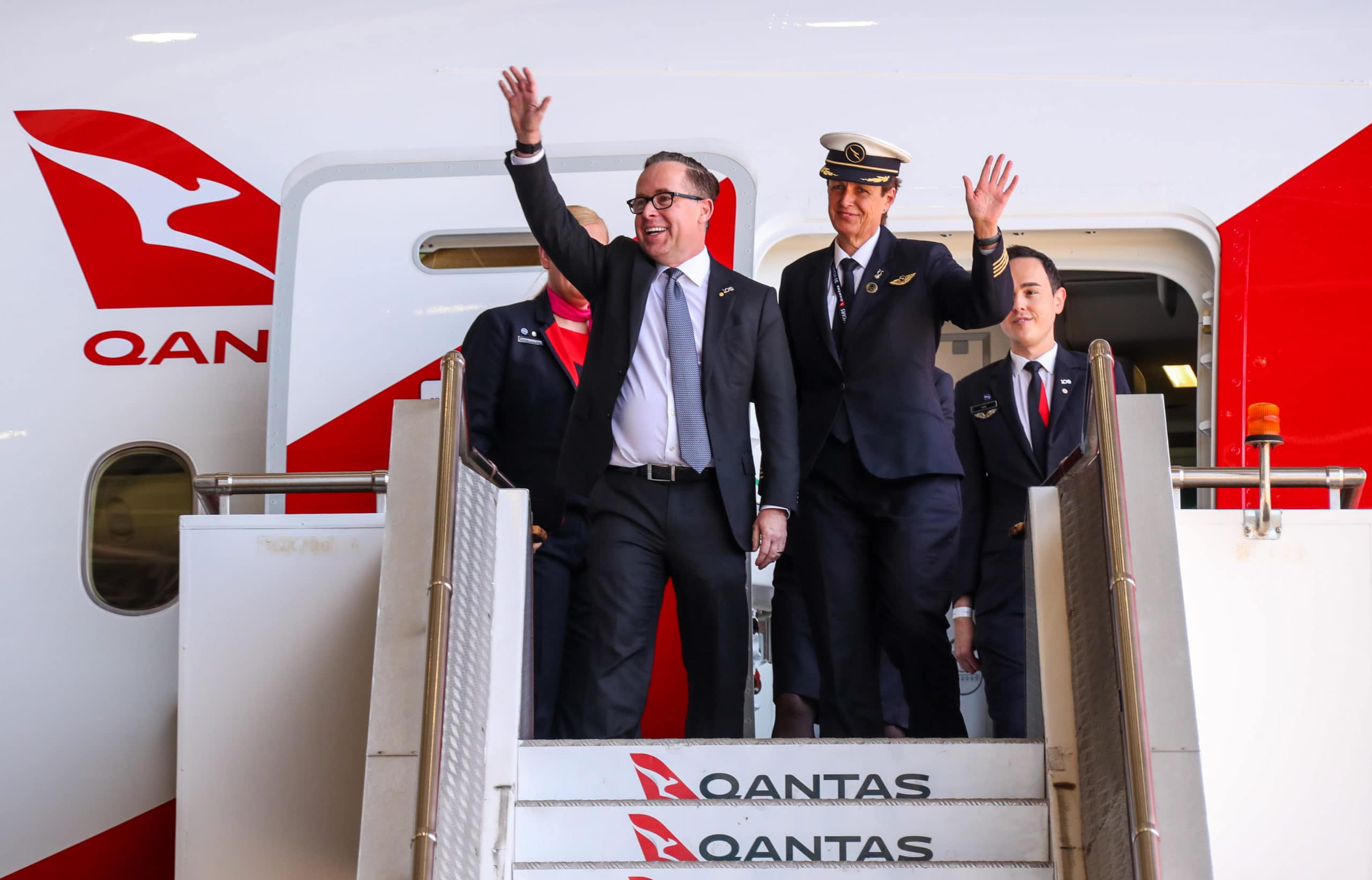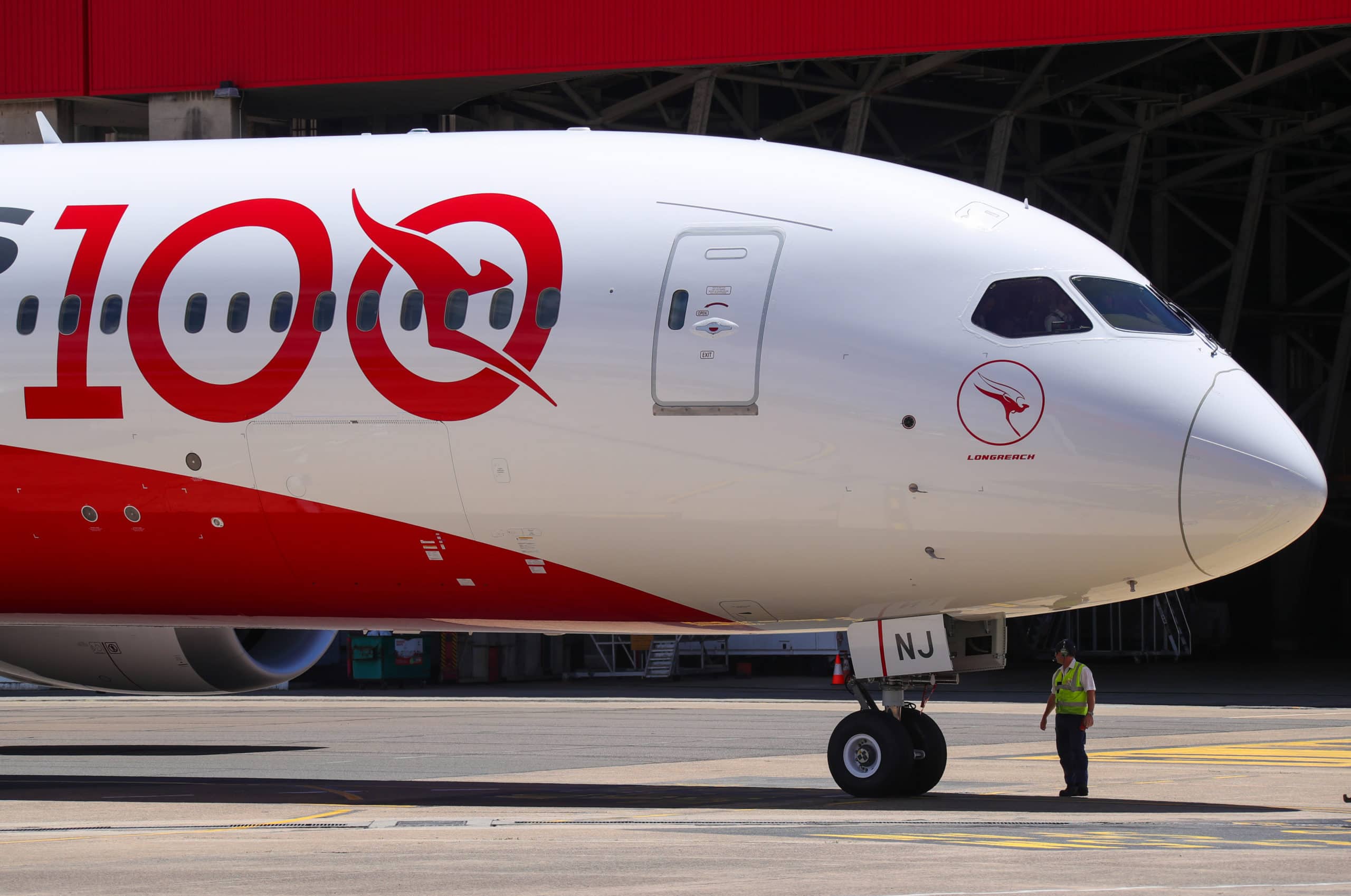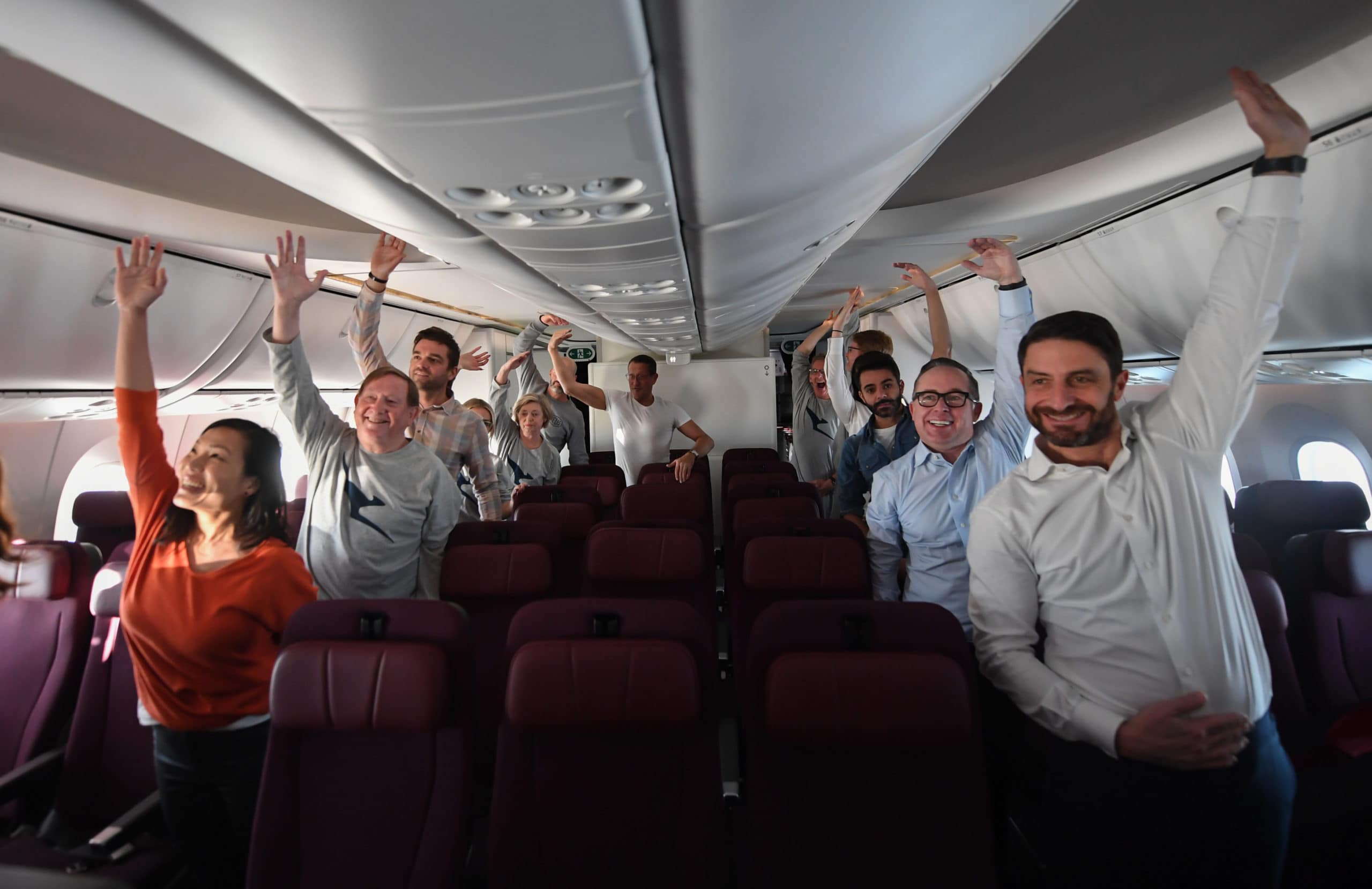Qantas Rejects Airbus and Boeing Project Sunrise Proposals
Share

Qantas revealed its decision regarding Airbus and Boeing’s offers during an investor presentation that followed the second of three Project Sunrise research flights.
Qantas has rejected Airbus and Boeing’s “best and final offers” for the airline’s Project Sunrise, which is looking at launching direct ultra long-haul services from Sydney and Melbourne to New York and London from 2023.
The airline has asked the manufacturers to “sharpen their pencils” and reconsider their proposals, Qantas International chief executive Tino La Spina told investors at the airline’s Investor Day in Sydney this week, conceding that Project Sunrise “must meet tough business case hurdles” to get a go-ahead.
Airbus had proposed the A350-100ULR for Project Sunrise, while Boeing’s candidate is the 777-8X and an unidentified interim solution (as the -8X’s development has been delayed), with the manufacturers submitting their offers to the airline in August.
“We’ve asked them to go back and re-look at that…because there was still a gap there,” La Spina told investors, adding that the manufacturers need to consider guarantees as well as price in order to allow Qantas to future-proof the operation.
As well as potential direct services to New York, London and Paris, the presentation also identified Rio de Janeiro and Cape Town as potential Project Sunrise destinations.

The investor presentation followed the second of three Project Sunrise research flights conducted by the airline. The London-Sydney flight, which took place last week, also marked the start of the airline’s centenary celebrations. The brand new 787, featuring a special livery, completed the direct flight in 19 hours and 19 minutes. The 50 passengers and crew on board experienced a specially designed service, including supper at breakfast time, to help them adjust to the new time zone; cabin lighting and temperature adjustments; and a stretching and meditation program. The third research flight is scheduled for December, from New York to Sydney.
The airline will use findings from the three flights to develop the onboard service for the proposed ultra long-haul routes, with the aim to improve crew and passenger wellbeing. “Move and stretch” zones and other social spaces are options under consideration, said Qantas CEO Alan Joyce. “We’re definitely looking to incorporate onboard stretching zones and even some simple modifications like overhead handles to encourage low-impact exercises,” he said.

Qantas intends to make a decision on Project Sunrise at the end of this year, with the airline moving forward only “if we can make all elements of the business case stack up,” Joyce said.
Investors heard that the existing Perth-London ultra long-haul service has revitalized the London market. Qantas is achieving a 94% seat factor overall on the direct service and 99% in business class. The route has the highest customer satisfaction rating in the airline’s international network across all cabins, the airline reported. The service is achieving a 30% fare premium in business and premium economy over one-stop alternatives from the UK, with the airline’s UK operations profitable for the first time in a decade.
Creating Customers for Life
Investors also heard that artificial intelligence (AI), biometrics, the digital experience, disruption management and personalization will be the focus of the airline’s future investments in order to deliver a superior customer experience and to create “customers for life”. Qantas is aiming to strengthen relationships with customers via AI-powered personalization as well as by focusing on disruption management, reward and recognition as part of its “know me, care for me, value me” initiative.
As part of its digitalization efforts, Qantas will use AI across its business, including for service personalization, biometrics, dynamic pricing, revenue management, catering waste reduction, predictive maintenance and schedule and crew optimization. Biometrics, for example, offers the potential of seamless customer journeys, Qantas said. The airline has already conducted successful biometrics trials at airports in Sydney, Brisbane and Los Angeles, with passengers enrolling at a kiosk or via a mobile app and face recognition taking place at bag drop, the lounge and the gate. The trials resulted in positive customer feedback and higher net promoter scores, according to the airline.
Other technology initiatives, such as in-flight Wi-Fi, are also proving their worth. Passenger Wi-Fi usage on domestic services is at approximately 40%, with strong customer feedback. The most popular usage is for web browsing, email, messaging, social media, video streaming and live sports. Some 95% of the domestic fleet of Airbus A330s and Boeing 737s will feature Wi-Fi by December.
The airline is focusing on listening to its customers and responding and is successfully resolving over 90% of complaints in seven days, while its chatbots (Jess on Jetstar and Matilda on Qantas) are solving millions of interactions across the group.
Sustainability is also a major focus going forward. Qantas said it has set the most ambitious emissions targets of any airline, including net zero emissions by 2050 and capping group emissions at 2020 levels. It is investing AUD$50 million in sustainable aviation fuels; plans to remove 100 million single-use plastic items per year by the end of 2020; and aims to reduce waste to landfill by 75% by the end of 2021.


